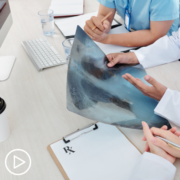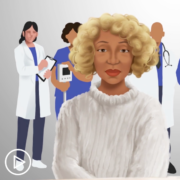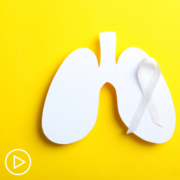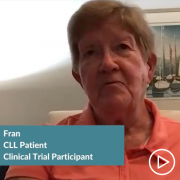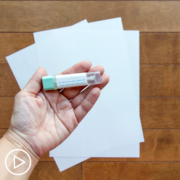Lung Cancer and COVID-19 Vaccine Effectiveness
Lung Cancer and COVID-19 Vaccine Effectiveness from Patient Empowerment Network on Vimeo.
What do lung cancer patients need to know about COVID-19 vaccine effectiveness and safety? Expert Dr. Heather Wakelee shares information gathered about lung cancer patients early on in the pandemic and advice regarding COVID-19 vaccination.
Dr. Heather Wakelee is a thoracic medical oncologist and deputy director of the Stanford Cancer Institute where she also serves as the division chief of medical oncology. Learn more about Dr. Wakelee, here.
See More From INSIST! Lung Cancer
Related Resources:
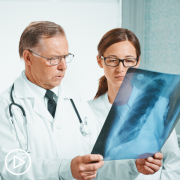
|
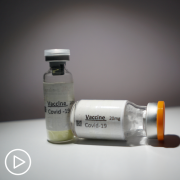
|

|
Transcript:
Katherine:
I’d be remiss if I did not bring up COVID-19, and, I’m sure a lot of patients are curious whether the vaccine is safe and effective.
Dr. Wakelee:
So, we do believe the vaccine is safe and effective for patients living with lung cancer, and really important to be protected as much as possible. I was part of a group of other physicians around the world looking at the impact of COVID-19 on patients living with lung cancer. And, we collaborated with a group of physicians, Rayna Garcina was the lead. She was living in northern Italy at the time of the first wave, and so, was really face-to-face with it early on when there was so much we didn’t know. And, she gathered a group of us to watch and see, and what we were able to figure out before the vaccine was available was that people living with lung cancer who were overall healthy still except for their cancer were perhaps on a pill, targeted therapy, or immune therapy seemed to really not have that different of an impact compared to people who didn’t have lung cancer.
Chemotherapy was a little bit harder to see that but didn’t seem to be such a big issue. It’s different than people living with, say, leukemias or lymphomas where the treatments are impacting their immune systems even more. They seem to have worse outcomes. A lot of lung cancer patients were okay, but still, it’s a higher risk. And so, we want to protect our patients as much as possible.
So, we are, now that we have the vaccines, strongly advocating vaccines for any patient who was living with cancer really for almost anybody because as a physician, we really think that makes a big impact. We have not seen any negative impacts of the vaccine on any aspect of cancer treatment. It does not have a negative impact on how well the cancer is treated by the therapies. We did notice that when someone gets the vaccine, they can get some enlargement of the lymph nodes. That’s part of having an immune response is your lymph nodes get enlarged. And so, we did get a bunch of scans that the vaccines came out showing, “Well, this person has some lymph nodes in the axilla, which is the armpit.”
And it seemed to be correlating with the side that someone had a vaccine. And then, those go away. And, this was actually an interesting medical literature thing because for people getting screened with mammograms for breast cancer, there were suddenly all these lymph nodes showing up. But that was actually a sign that the person was responding to the vaccine, and it went away over time. And, it was a fine thing. It was just – I remember the first patient I had where that happened, we’re like, “Oh, well, that makes sense. Okay.” So, it’s okay. So, it was not cancer. It was just the immune response. But, yeah, so, we are recommending vaccines. There’s no data showing it is not working for lung cancer patients. The vaccines are less effective in people getting certain types of cancer treatment that are really suppressing the immune system. But even some response is better than none, and we’re still recommending the patients really do their best to stay safe with masks and things like that.

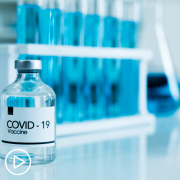
![[ACT]IVATED AML Resource Guide [ACT]IVATED AML Resource Guide](https://powerfulpatients.org/wp-content/uploads/ACTIVATED-AML-Resource-Guide-180x180.png)
